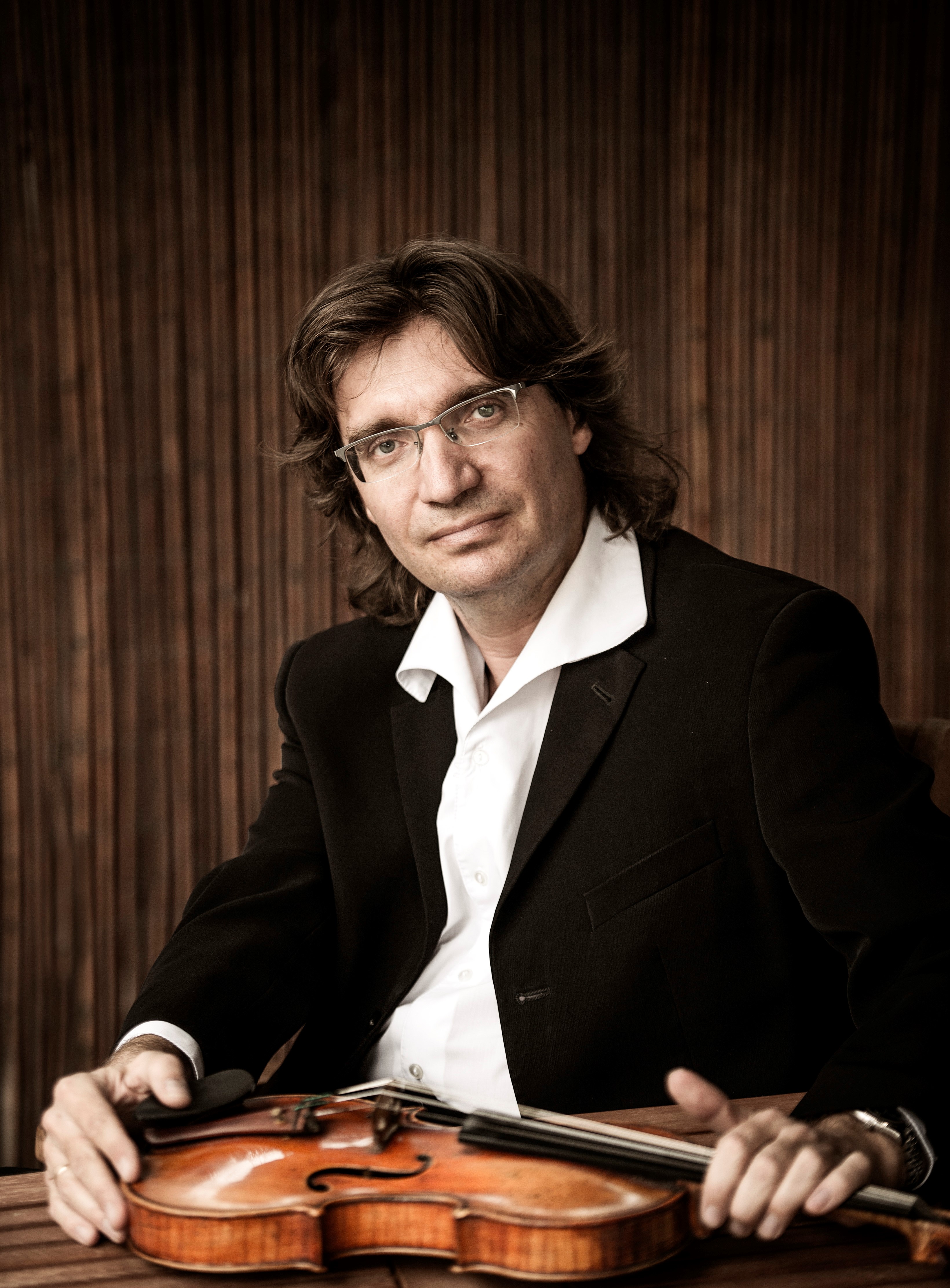Bacewicz | Szymanowski | Różycki | Karłowicz
19 January 2019, 7 p.m.
Witold Lutosławski Polish Radio Concert Studio in Warsaw

Fot. Joel Schweizer
Performers:
Piotr Pławner | violin
Jerzy Semkow Polish Sinfonia Iuventus Orchestra
Marek Wroniszewski | conductor
Programme:
Grażyna Bacewicz Overture for Symphonic Orchestra
Karol Szymanowski Violin Concerto No. 1, Op. 35
Ludomir Różycki Stańczyk Symphonic Scherzo
Mieczysław Karłowicz Eternal Songs Symphonic Poem Op. 10
The favourite theme of Polish music criticism at the turn of the 19th and 20th century was the search for “influences of Wagner and Strauss” in Polish music – which was both praise and reprimand, depending on the preferences of the critic; these comparisons were often completely misguided, but in the case of Ludomir Różycki and Mieczysław Karłowicz, they were justified. Both great Polish Neo-Romantics owed much especially to the colourful style of Richard Strauss and his concept of “programme music” realised in brilliant symphonic poems. Różycki’s symphonic scherzo Stańczyk from 1900 refers to Matejko’s famous painting and the history of the royal jester (with the motif of a krakowiak introducing the Krakow milieu), and the contrasting, vividly instrumented poem allegorically outlines the idyllic and dramatic episodes of national history, seen through the prism of the philosophical jokes of this legendary character.
When audiences admired Mieczysław Karłowicz’s Eternal Songs at the Warsaw Philharmonic on the 22nd of January 1909, no one could have guessed that it was the composer’s farewell, who only two weeks later died tragically under a Tatra avalanche. The impressive symphonic triptych with a programme signalled by “Young Poland” titles (“Song of Eternal Longing,” “Song of Love and Death” and “Song of Omnipotence”; the composer added a motto to the first one: “Here I stand before you to bring a complaint about my fate!…”) is one of the most personal compositional statements of the prematurely deceased Polish Neo-Romantic, a testimony to the enormous scale and originality of his talent. Today, it is one of the most frequently performed and most valued works by the composer.
Karol Szymanowski’s Violin Concerto No. 1 (dedicated to Paweł Kochański) was written in Zarudzie in the Eastern Borderlands during World War I. It was a special moment, when the composer freshly remembered his admiration of the beauty of the Mediterranean landscape and the magnificence of Italian Culture, discovered several years earlier during his long journeys – now he remained surrounded by the historic turbulence that would soon destroy the idyllic world of his youth. Szymanowski’s compositions from that time are an expression of a kind of escapism to regions of the most sublime musical sensuality: “… I am very content with all of it – all sorts of different new notes, but also a return to the familiar. The whole is terribly fantastic and unexpected…”, Karol Szymanowski wrote in a letter to his friend, Stefan Spiess. The brilliant work stands as the creative apogee of this period and still inspires admiration with its original form and texture, subtlety of sound, and an unusual oneiric aura. All these advantages will be revealed by the performance of the excellent violinist Piotr Pławner, winner of the 10th International Henryk Wieniawski Violin Competition, today one of the leading Polish violinists.
Motoric, full of energy, sparking with spectacular sounds, Grażyna Bacewicz’s Overture for Symphonic Orchestra was created during the difficult time of German occupation, and its premiere took place during one of the first major post-war music events – the Festival of Polish Contemporary Music in Krakow – under the baton of Mieczysław Mierzejewski.
The concert will be led by Marek Wroniszewski, a talented conductor of the young generation, recognised by the jury as the best Polish participant of the 10th International Grzegorz Fitelbelrg Competition in Katowice.
Tickets available at eBilet, bilety24, and sklep.polskieradio.pl, as well as in the box office of W. Lutosławski Concert Studio of Polish Radio one hour before the concert.
